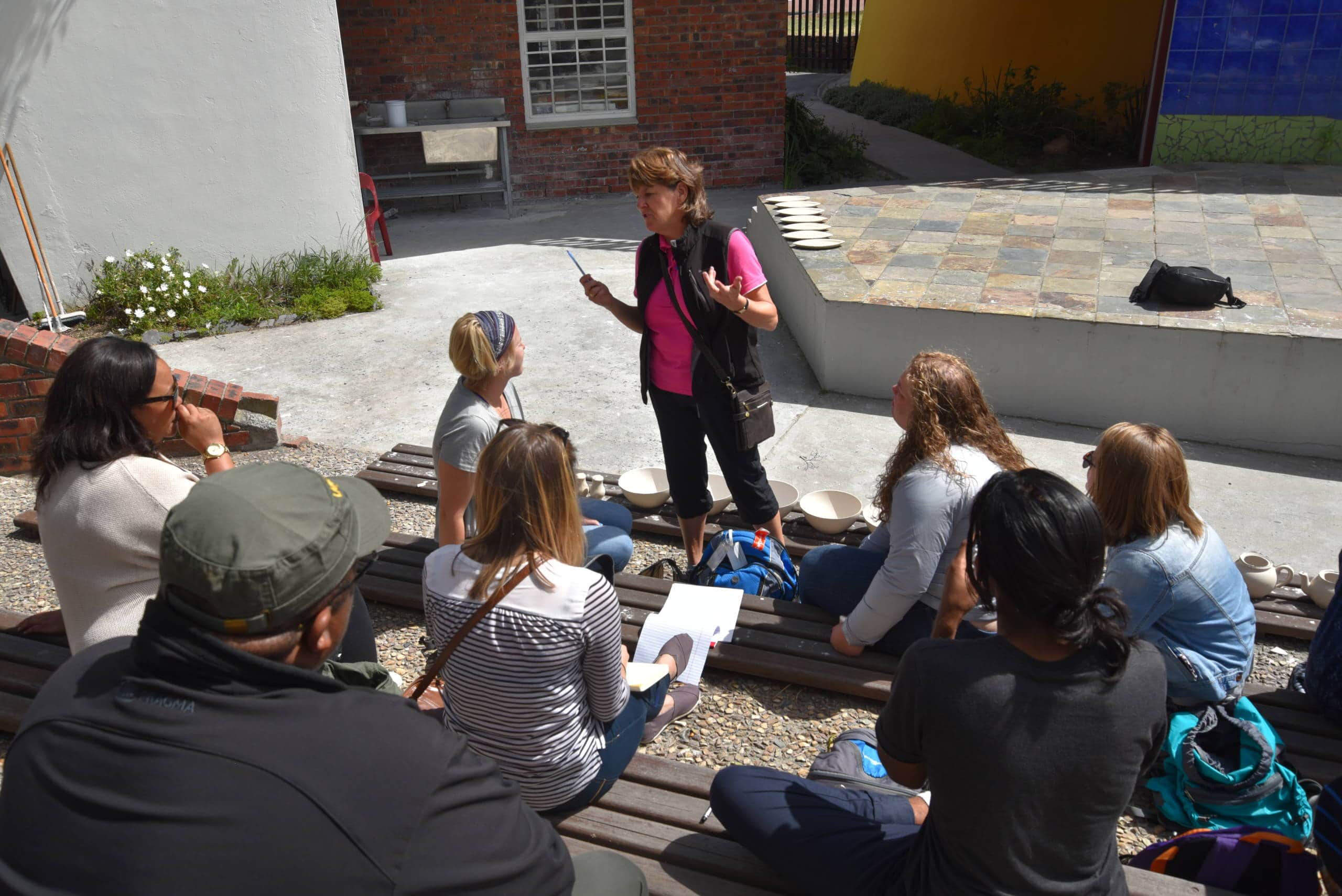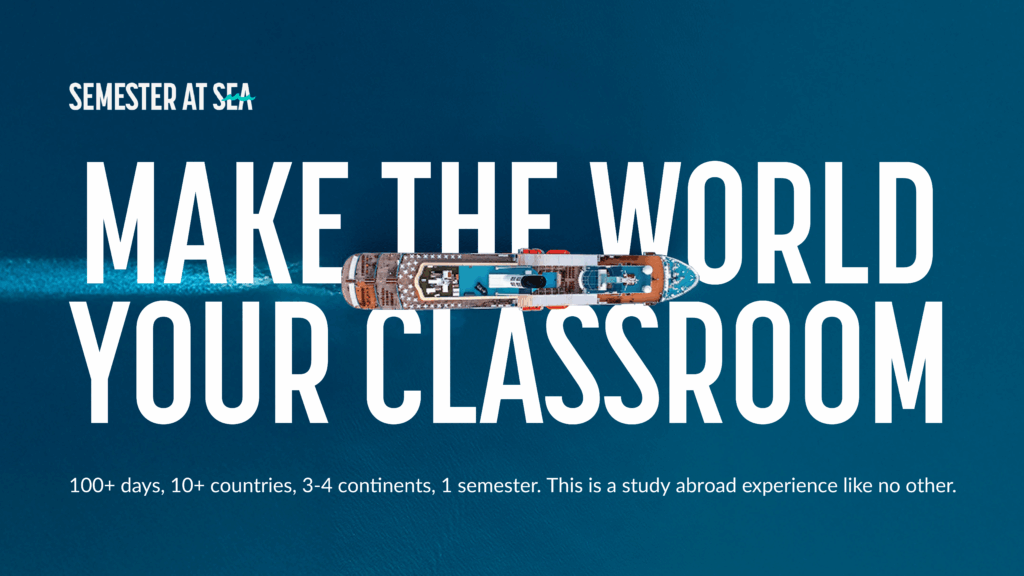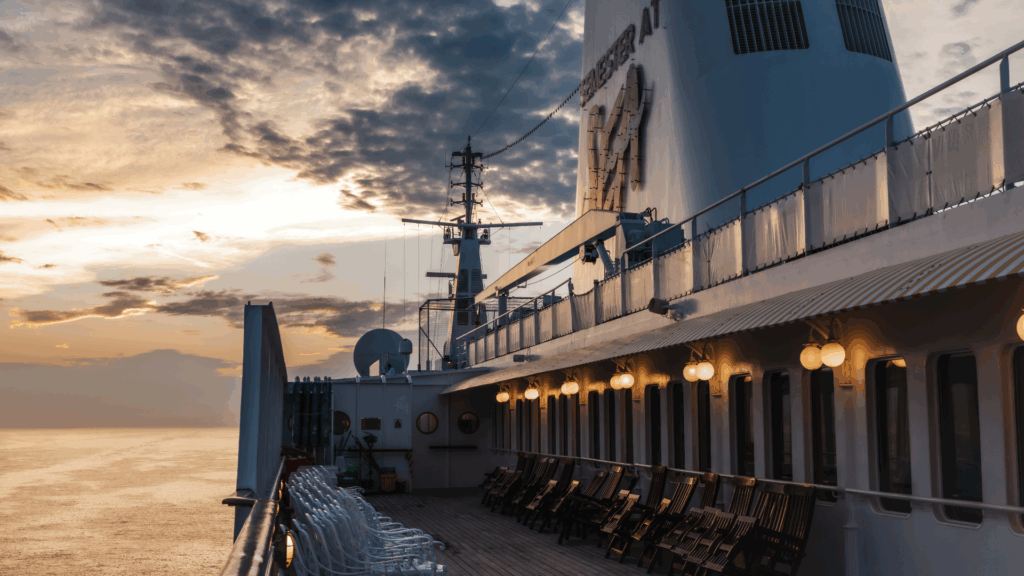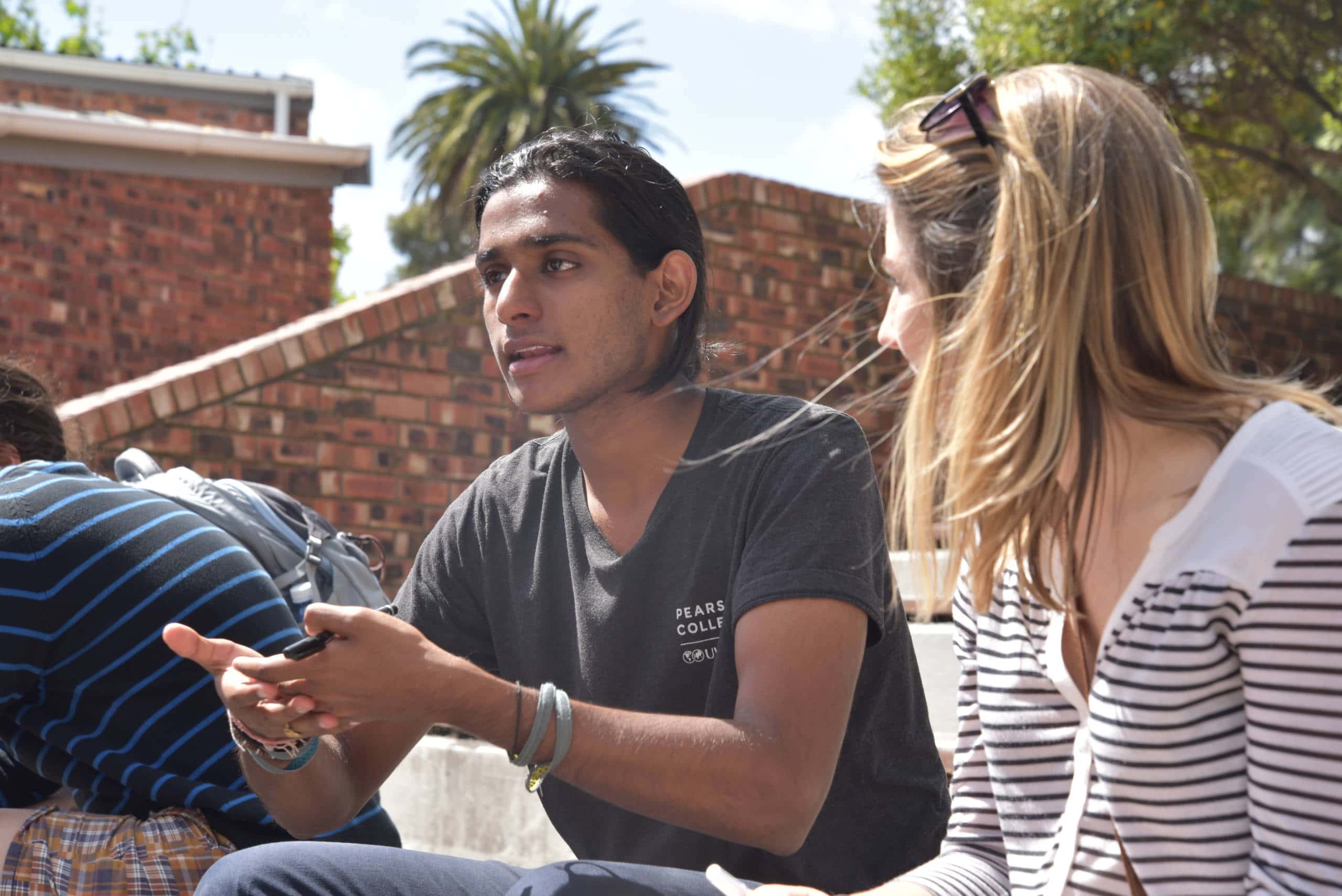
During a visit to Langa Township in Cape Town, students found themselves confronted with a question essential to the fabric of Semester at Sea: are voyagers acting as voyeurs, tourists, or empathetic scholars and world citizens?
In Heather Gibson’s Tourism Impacts class, students spend much of their time discussing those very issues. Prior to their field class in Langa, the first officially incorporated township in Cape Town, voyagers debated the pros and cons of “township tourism” and the impact it can have on a community.
Based on their classroom conversations, not all students were convinced that township tourism had a positive affect.
“I was learning about it (township tourism) and definitely created an opinion. I thought that it was wrong in a sense,” said Hannah Gruen of University of Oregon. “I know that it provides some type of economic benefit to the community but I thought it was kind of weird to go into community and look at poverty as a spectacle.”
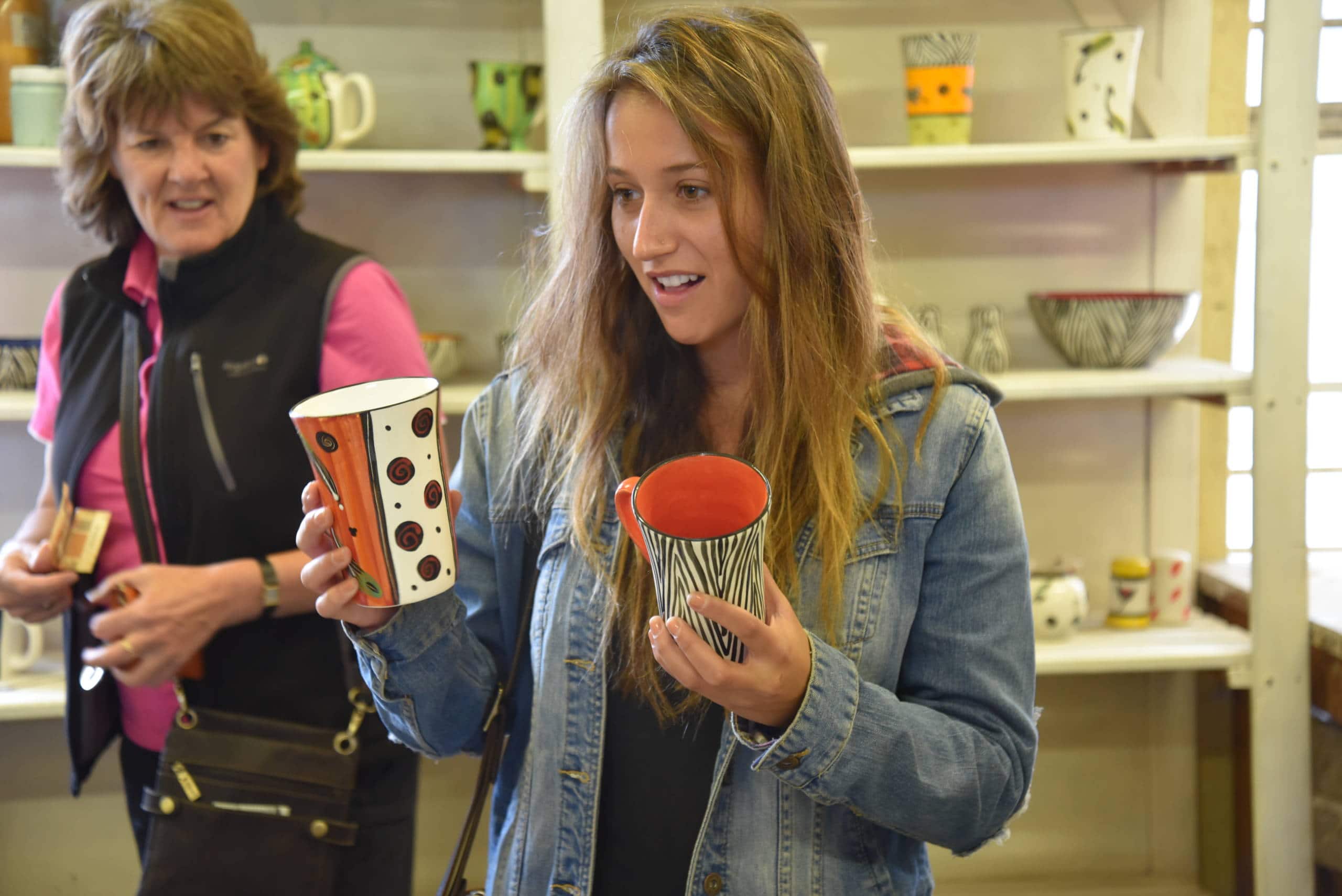
To experience those concepts firsthand, students started their day with a visit to the Guga S’thebe Art Centre, where they met local professor Tracy Daniels of the Cape Peninsula University of Technology and guide Alfred Magwaca. After discussing the history of Langa Township and the tourism industry in Cape Town, Daniels and Magwaca led voyagers on a walking tour where students visited local homes and craftspeople, a traditional medicine healer, and a museum dedicated to the history of Langa under apartheid.
Throughout the day, Magwaca pointed out how, by visiting, voyagers were contributing to the economic growth of the community by purchasing goods, food, and making donations to a local school.
“We looked at the positive and negative impacts of it, and one that came up often was how in terms of economics, there is a way in which this sort of tourism, especially the way we did today, did support a lot of local vendors,” said Aaron Salot, a gap-year student from India. “I think in a way it reinforced further the idea of economic benefits.”
The day ended with another lively discussion, during which Salot said he felt the class was able to move beyond a voyeuristic, surface level visit.
“Alfred, the guide, knew a lot of people and a lot of the interactions we had with people we wouldn’t be able to do if we were foreigners walking around. Especially with race being a big factor. That puts us as outsiders,” said Salot. “I think that this was a way to get beyond that big barrier‚Ķ and able to touch on things on the other side of the world that we wouldn’t have been able to, because we were able to do so many things that give you an actually idea of the community instead of just looking down on it. It made you compare it as an equal.”
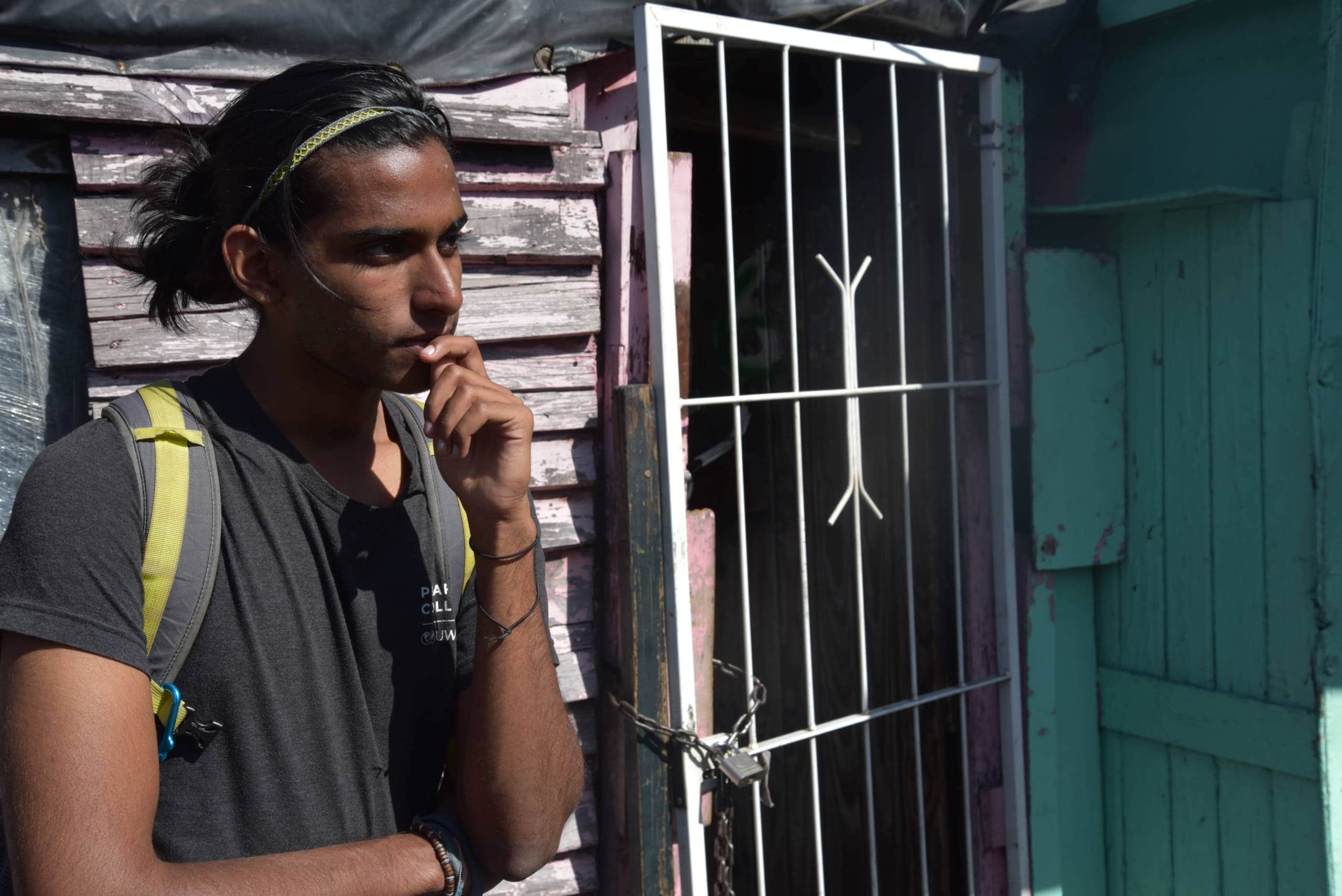
Still, not all voyagers were convinced, though Gruen in particular did start weighing the pros and cons of township tourism more carefully after experiencing it up close.
“I’m a little conflicted about it. I see a lot more of the positive aspects of it now. I knew that it would provide jobs for people, tour guides and things like that. But we really didn’t offer much to the rest of the community in terms of social, economic or environmental impact,” Gruen said. “I just wonder how those people feel about us being there when we’re not directly contributing to their lives.”
Those are questions, not easily answered, that scholars and operators in the field still grapple with. But on the bus ride back to the MV World Odyssey, Salot said that even though the field class didn’t definitively answer those debates, it was the type of experiential learning that allowed students to put their ideas in to practice.
“I think this was one of the field classes where we were able to experience firsthand and able to apply the theories we learned in class, and I think that sort of puts in to perspective what a lot of the academics that Semester at Sea stands for. Because at sea, the idea is to learn theory and concepts that can be further applied. It’s sort of like by theorizing, and being able to apply at the same time, you get so much depth within the experience. It just enhances your experiences, as well as your learning at the same time, and this was the best example of something that sort of gives me a lot to think of, because it’s not just reading from the paper.”
